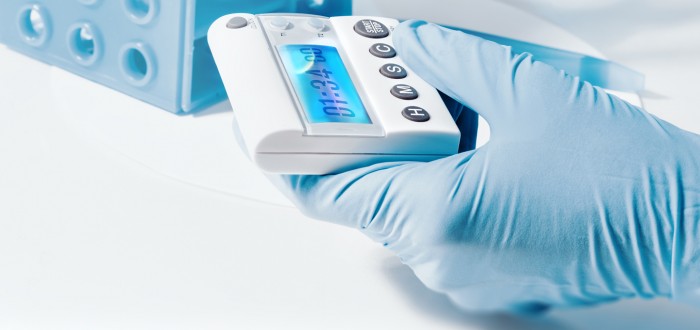One of the drawbacks to mesothelioma chemotherapy is you have to wait to see if it worked. You can’t be given chemotherapy and then right away know how much, if any, damage the mesothelioma tumors sustained.
Usually you must repeat dosing with the mesothelioma chemotherapy drugs over a course of days or weeks before the effects are seen — or not seen.
A recently developed test from Brigham and Women’s Hospital in Boston, Massachusetts, may allow your doctor to determine within mere hours after the initial dose if mesothelioma chemotherapy is working for you.
The advantage of knowing so quickly could be huge. Mainly, you could be spared from having to continue with the chemotherapy regimen if it turns out the drugs are having little or no effect.
That way, you could avoid days or weeks of unpleasant side effects suffered for nothing. You could also be switched immediately to a different and potentially more effective treatment.
Possible Benefits Include Longer Mesothelioma Survival
One such alternative would be immunotherapy. Switching to it — or to something else entirely — would allow your doctor to stay a step ahead of your mesothelioma.
The key to surviving mesothelioma for the longest time possible is to attack it with the right treatments without delay.
You will lose no ground in that fight if your doctor can confidently abandon chemotherapy right away. You may, in fact, gain ground if he or she can quickly get you started on another mesothelioma therapy.
The traditional way your doctor can tell if chemotherapy is effective is by putting you under a CT, PET or PET/CT scanner before treatment and then again after treatment.
Comparing the before and after images allows your doctor to see if the mesothelioma tumors have shrunken. Chemotherapy is working if the tumors got smaller. It’s not working if they stayed the same size or grew.
The problem is that the shrinkage isn’t noticeable until after you’ve had several days or weeks of chemotherapy.
This new test developed at Brigham and Women’s Hospital reveals effectiveness much faster — within eight hours of your first cycle of chemotherapy drugs.
The reason for the faster findings is that the new test looks at what chemotherapy is doing to individual mesothelioma cells rather than the entire tumor.
New Chemotherapy Test Detects Caspase
The researchers described the new test in the journal Proceedings of the National Academy of Sciences. They said the test works by detecting the enzyme caspase. Caspase is present when a cell dies.
Caspase detection is accomplished with the help of a special nanoparticle the researchers devised. This nanoparticle — which they refer to as a reporter element — glows green if it senses caspase nearby.
The researchers tested their reporter element in the lab with cancer tumors subjected to the chemotherapy agent paclitaxel.
Some of those tumors had sensitivity to paclitaxel. As a result, those particular tumors showed a 400 percent increase in fluorescence hours after the paclitaxel was administered.
That meant the reporter element was indeed detecting caspase. And the reason it was detecting caspase was because the tumor cells were dying.
“The cells light up the moment a cancer drug starts working,” the researchers wrote. “Our long-term goal is to find a way to monitor outcomes very early so we don’t give a chemotherapy drug to patients who are not responding to it.”

